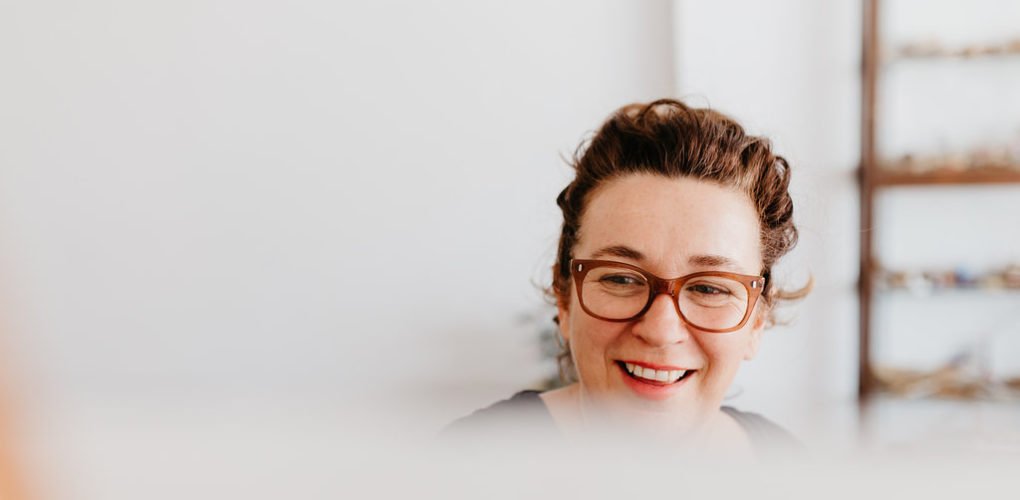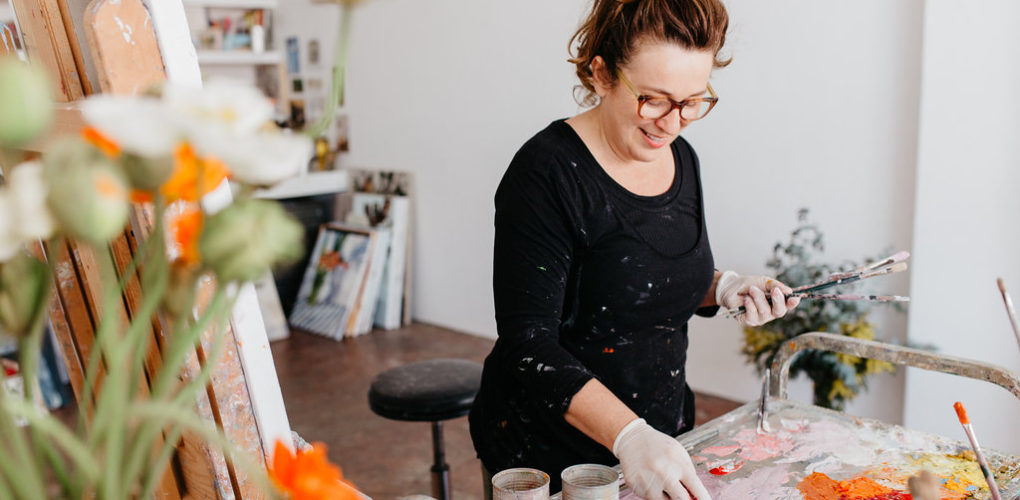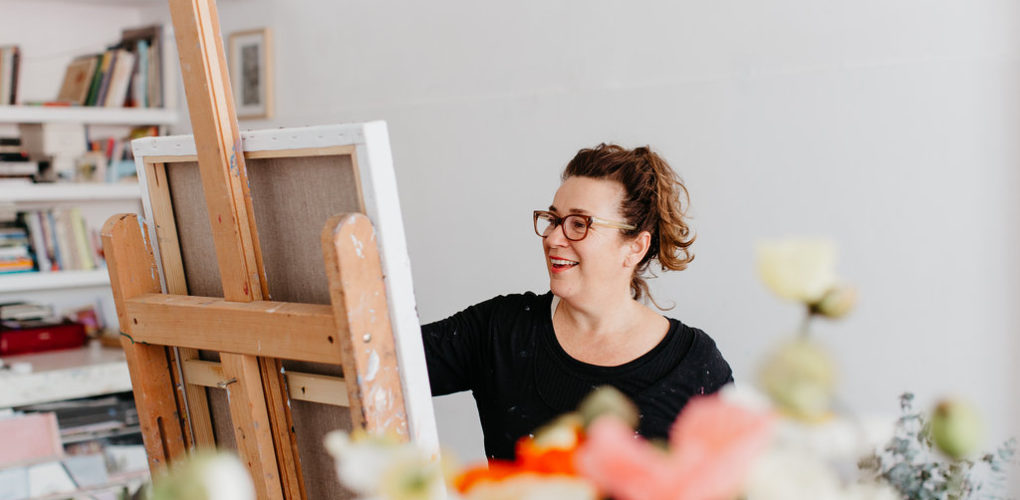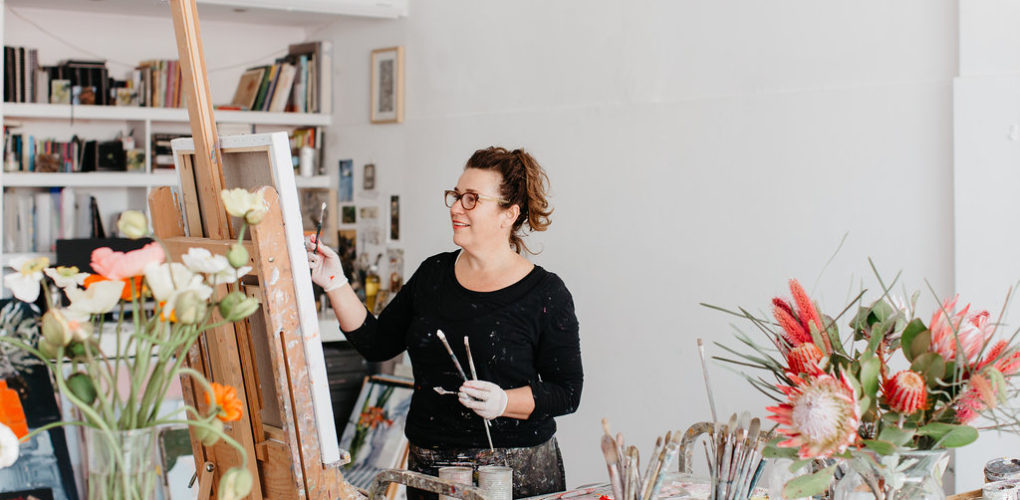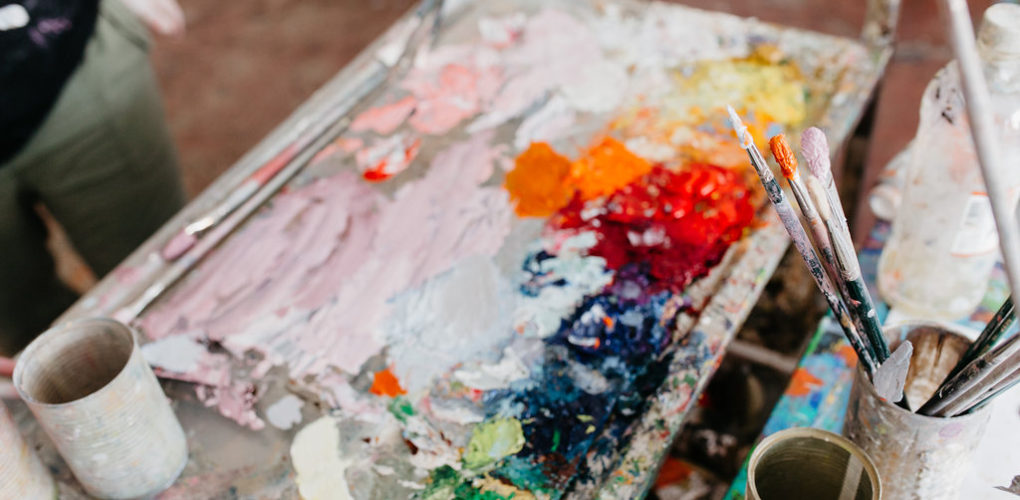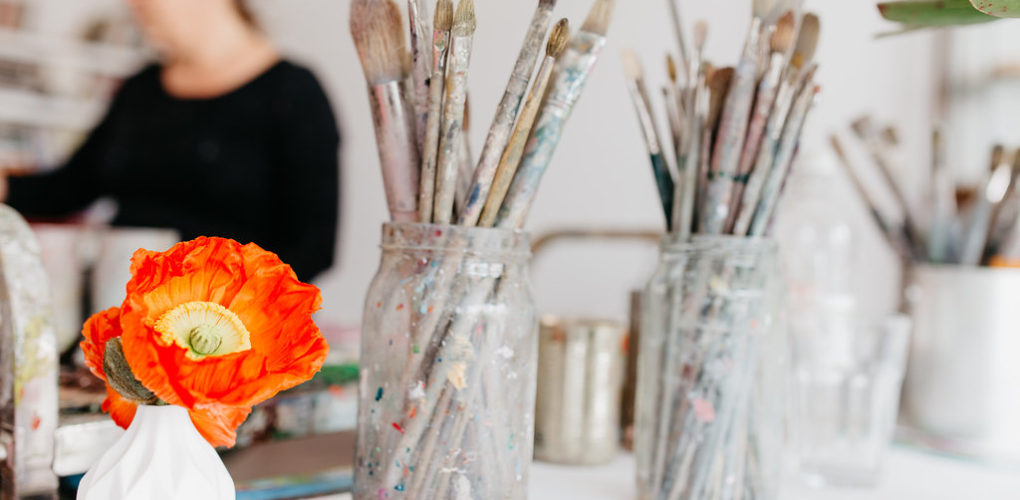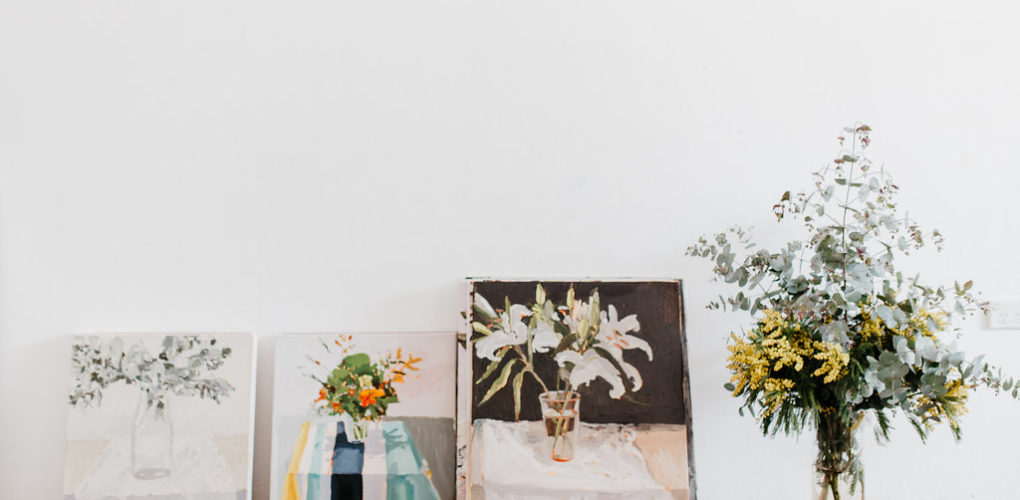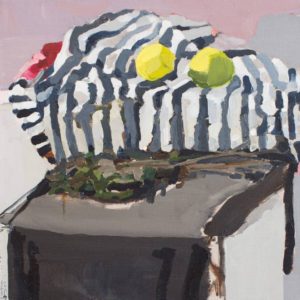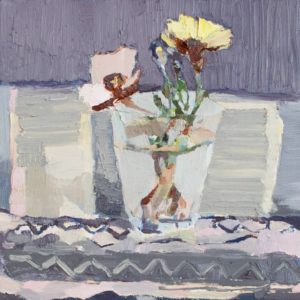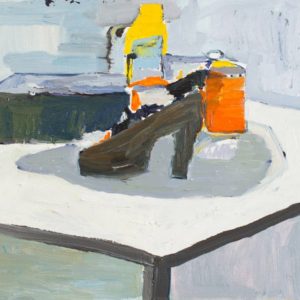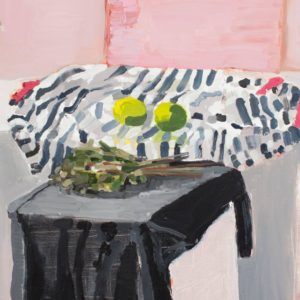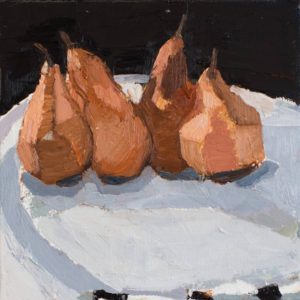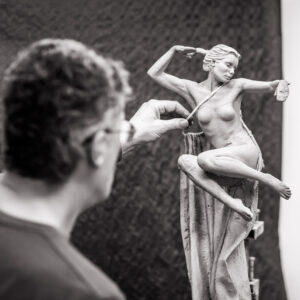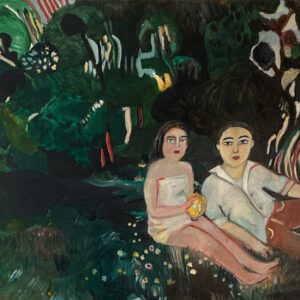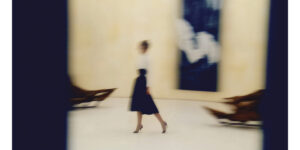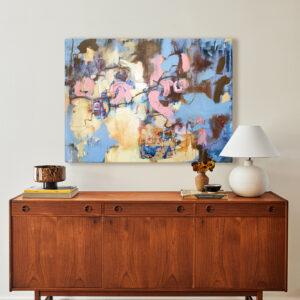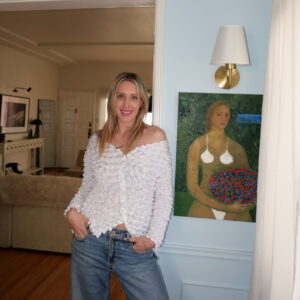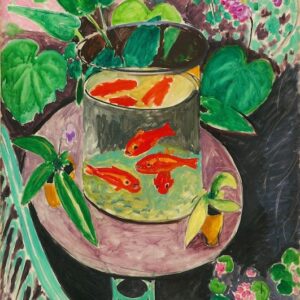Inside the Studio
 Lisa Patroni creates colorful still life works
Lisa Patroni creates colorful still life works
What are the major themes you pursue in your work?
The major themes I pursue are about: life and death, presence and being. My medium is pretty traditional: oil paint on linen.
How did you first get interested in your medium, and what draws you to it?
I studied printmaking and photomedia at art school and only became involved in painting when I was undertaking my postgraduate in painting in The Netherlands. What draws me to painting is the lineage of painting – the history and the directness of painting.
How has your style and practice changed over the years?
I started out with drawing, printmaking and photomedia, so most of my early images were in black & white. Recently I’ve been working from life and using oil paint, consequently colour became important. I’ve just embarked on a Masters in Painting at the National Art School in Sydney, so I think there will be more growth and changes to come.
Can you walk us through your process? Do you begin with a sketch, or do you just jump in? How long do you spend on one work? How do you know when it is finished?
I draw a lot. Sometimes I base my big paintings on my drawings. Sometimes it’s from photos and sometimes from life. My process is very intuitive, although I usually have a pretty definite idea about colour. I can spend up to a year on and off on one painting. I usually have several paintings going at once. Sometimes I finish a painting in a few hours.
Who are some of your favorite artists, and why?
Some of my favourite artists come from the Expressionist and Abstract Expressionist tradition. Artists like Van Gogh, Edvard Munch and later Joan Mitchell and Helen Frankenthaler. I also love Richard Diebenkorn and the Bay area figurative movement. I like it that they were grounded in an abstract training and then moved into figuration. I first went to art school in the 80’s when artists like Francesco Clemente and Georg Baselitz were big and I still love Clemente’s work. I also love Peter Doig and Luc Tuymans.
What was the best advice given to you as an artist?
The best advice given to me as an artist was just to be yourself and feel your way with it. Use your intuition.
